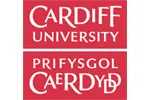

| The award | How you will study | Study duration | Course start | Domestic course fees | International course fees |
|---|---|---|---|---|---|
| MSc | Full-time | 1 year | September | find out | find out |
The Gravitational Wave Physics MSc provides broad and comprehensive training in both theory and experiment in gravitational wave (GW) physics and astronomy.
The field of gravitational physics has grown rapidly in the last few years following the first direct detection of gravitational waves in 2015, one hundred years since they were first predicted by Einstein’s general theory of relativity. The landmark first detection, from two black holes colliding, was followed in 2017 by the first joint gravitational-wave and electromagnetic observation of a neutron-stars merger and subsequent gamma-ray burst, and by the award of the 2017 Nobel Prize in Physics. Gravitational-wave observations are now transforming our understanding of the universe, and the field will continue to grow in the next decades with successive improvements in the sensitivity of current detectors, the design and commissioning of the next generation of ground-based detectors, and the space-based LISA detector.
The Gravitational Wave Physics MSc provides broad and comprehensive training in both theory and experiment in gravitational wave (GW) physics and astronomy: techniques in laser interferometry for GW detection, general relativity, astrophysics, modelling of GW sources, and data analysis for GW detection and source interpretation. The programme offers three streams, which allow specialisation in GW observation, data analysis and source modelling, or a broad experience across these topics. Cardiff University staff are at the forefront of world-leading research in all of these areas, which span the core topics at the heart of the field, and which make this a unique degree programme.
As part of the programme you will complete a three-month summer project on one of these research areas. As part of your research you will have the opportunity to join the LIGO Scientific Collaboration (LSC) and to contribute to flagship projects related to gravitational-wave experiment, source modelling, signal searches, and astrophysical interpretation.
On completion of the programme you will have the knowledge, skills and experience necessary to begin a research career in gravitational-wave physics, and be a competitive candidate for jobs in industry.
Distinctive features
For tuiton fees for this course, please visit our website
If you’re a home-fee paying student, you can apply for a £3,000 Master’s Excellence Scholarship from Cardiff University to help cover the cost of this programme.
For entry requirements for this course, please visit our website
Below are some suggested courses at other providers that you may also be interested in:
On-Campus - Bachelor of Science (Mechanical Engineering) BSc
Engineering Institute of Technology
Find out moreBachelor of Business Administration BBA
University of Applied Sciences Europe - Amsterdam
Find out moreIf you do not meet the entry requirements for this course then consider one of these postgraduate preparation courses from another institution:
Graduate Diploma of Engineering (Industrial Automation)
Engineering Institute of Technology
Find out moreGraduate Diploma in Applied Science (Medical Physics)
Queensland University of Technology (QUT)
Find out moreThere are 591 other courses listed from Cardiff University. A selection of these are displayed below:
See other universities in Cardiff
Find out more about studying in the United Kingdom
As an international student you may require a valid visa to study at Cardiff University. Read more about the requirements in our Guide to the United Kingdom International Student Visa Requirements.